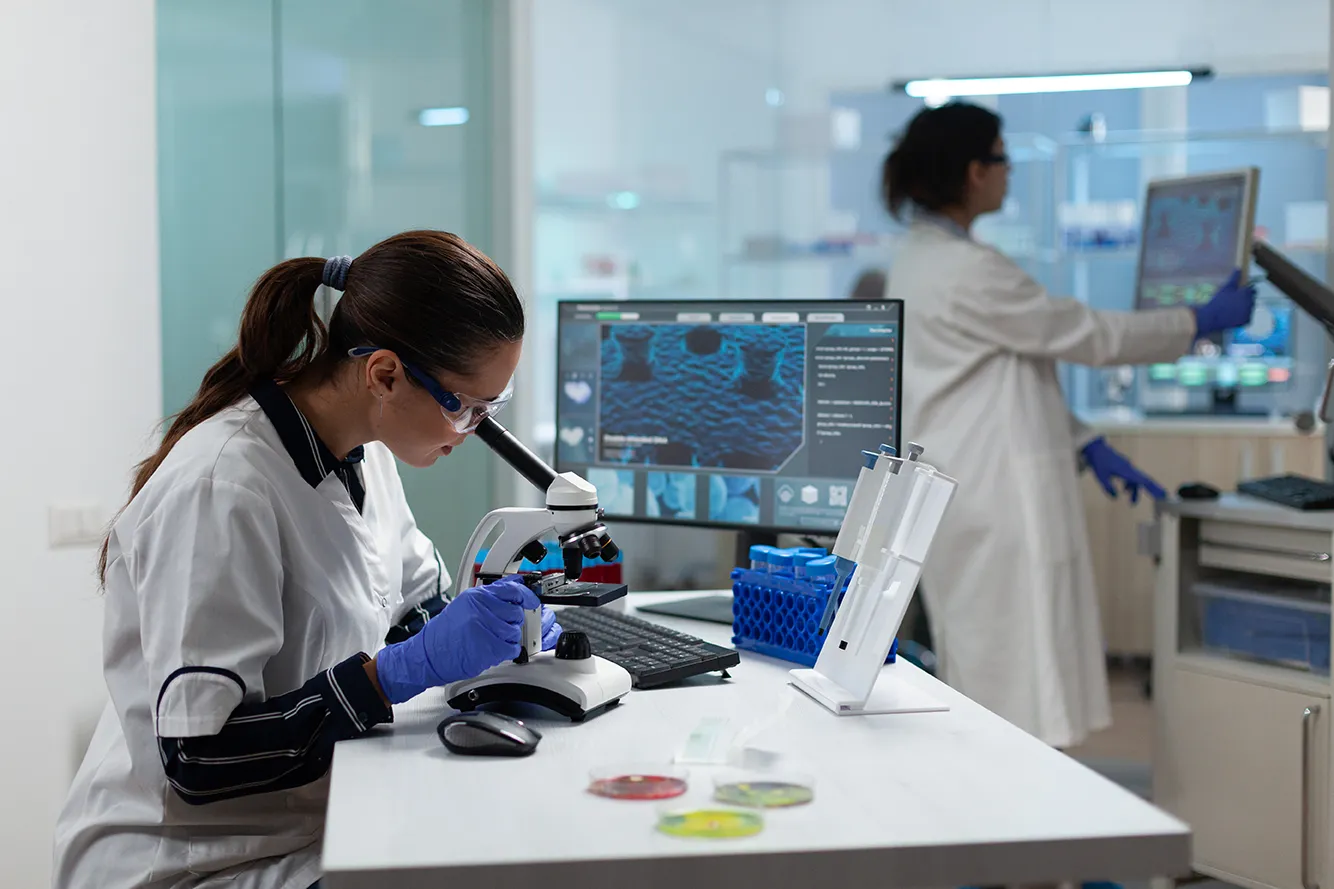Event News
Biomedical Science vs. Biotechnology: What are the Differences?

We have heard the terms Biomedical Science and Biotechnology several times and think they both mean the same. But that is not the case
To understand their differences, we need to understand biomedical science and biotechnology in detail. Both terms are related to the study of the science of life, but both focus on different aspects.
An Overview: What are Biomedical Science and Biotechnology
Biomedical Science studies the human body and is all about the “what,” “why,” and “how” parts of things. It studies the human body to know how diseases and drugs affect the human body.
Biomedical Science is all about researching different diseases like cancer, diabetes, aging, etc. This research contributes to making new drugs, therapies, or treatments. Biomedical Science studies the human body, its organs, cells, and system function in detail.
By studying the human body, science wants to understand the effects of diseases or drugs on the human body.
This branch of science is research-based and revolves around lab tests. The outcome is focused on the improvement and development of medical knowledge.
Biomedicine helps one understand the fundamental workings of disease and how one can break down those workings to find the basis of it all.
Biomedical Science studies the structure of the human body and how drugs affect it. It also studies the effects of chemical processes on living organisms.
Now when we talk about Biotechnology, which is all about fixing a problem, it is more about “what can be done to fix a problem.” Biotechnology uses living organisms for the development of new products like seedless watermelons, bio-detergent, and biodegradable plastics.
Biotechnology utilizes biological systems to alter the health of human beings or their environments.
The advancement of biotechnology is to find ways to tackle severe diseases, create sustainable products to lessen environmental footprints, and conserve energy. Biotechnology is all about improving the quality of life.
It is a branch of science that has gained a lot of popularity over the years. A most current example of biotechnology was the vaccines produced during COVID-19.

Academic Requirements for Enrolment
To pursue a Bachelor of Biomedical Science, the applicant must have had Physics, Chemistry, and Biology as their main subjects in high school. The applicant must have a bachelor’s degree in Life Sciences if applying for the postgraduate program.
The Eligibility Criteria for a Bachelor of Biotechnology is that the applicant must have an 80 percent score in their high school board with subjects being Physics, Chemistry, Biology, or Mathematics. For postgraduation, the applicant must have Bachelor’s degree in Biochemistry and Microbiology.
For Biomedical, students need to understand Mathematics and Physics well. For a Bachelor of Science in Biotechnology, students need to understand Biology and chemistry well.
Subjects covered in Biomedical and Biotechnology
In Biomedical Science Degree, students are expected to cover Pharmacology, biochemistry, Genetics, Physiology, pathology, cell Biology, Microbiology, and more.
The subjects are not limited to only these. Subjects covered in Biotechnology are Cell Biology, Animal Biotechnology, Fundamentals of Chemistry, Crop Biotechnology, and Biostatistics.
Biomedical Science and Biotechnology are different branches of Bioscience, so some of the subjects are going to be the same as well.
Career Paths After Completion
Now, if students need clarification about which field to pursue, both fields provide different career paths. The prospects of Biomedical students are mainly in the research area of the medical and healthcare field.
By pursuing a Biomedical Science Degree, one can become a Biomedical Scientist, Clinical Scientist, Forensic Scientist, or Drug Developer.
On the other hand, Biotechnology opens different career paths, because it is such a vast field. With Biotechnology, one can become Epidemiologist, Food Scientist and Technologist, Environmental Biotechnologist, and Biomedical engineer.

In a Nutshell
There are so many differences between Biomedical Science and Biotechnology, even though they are both parts of Bioscience. It is possible to pursue both fields of study abroad as well. Having said that, the possibilities are endless in both fields.
Students can even combine some of their knowledge to have an expected outcome. There is no comparison between Biomedical Science and Biotechnology, even though they have branched out from Bioscience.
With so many life forms to study, it is vital to divide them, making it easier for students to decide which path is best for them.
Biomedical and Biotechnology are used together to mean the same thing, but they are very different in some ways and similar in others. The differences are vital in understanding the various implications and knowledge areas of the fields.

